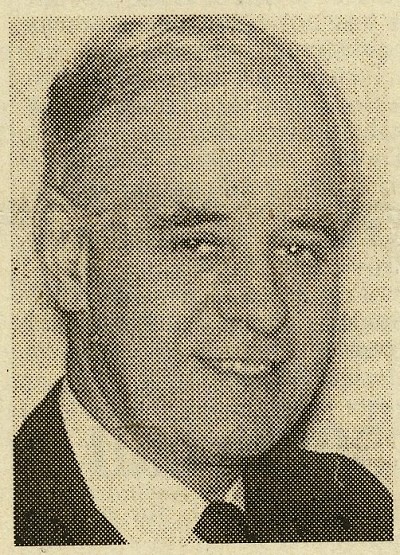By John Lowe
By John Lowe
1945 - 1976
I have spoken to Margaret (Gran) more recently about Ken's time after the war and life wasn't as great as I would have expected. Ken was quite ill straight after the war with what was later diagnosed as epilepsy. His illness first came to light after his operations finished in the Bahamas on the 13th May 1945, he was relieved to find out the war was over and fully expected to be part of an operation involving the transport of troops out of Germany back to England in either Flying Fortresses or Liberators. However in July 1945 he was asked to go to join the war effort against Japan, which would have probably involved similar tasks from the previous 5 years such as protecting convoys and hunting U-boats.
Margaret remembers...
"The details relating to the posting to Japan are rather complicated. As far as I can remember health problems were being checked to find the cause of this lack of confidence. We went to Northallerton in Yorkshire by train for tests to be carried out. While staying at my home in Harlow we decided to go to the cinema in Epping. On the return journey by bus, Ken had an epileptic fit and a local doctor was called to attend him at the local Harlow bus shelter. Dr Shield diagnosed it was some kind of 'hysterio-epilepsy'. Swithen Meadows, a consultant at Queens Square Hospital, London was seen. A subsequent fit occurred when we were traveling on a train to Harlow. A taxi took us to my home from the station at Harlow. Subsequently Bishops Stortford Hospital Haymeads treated Ken for acute pain in the shoulder but physiotherapy did not bring any relief. Some months later at Mongewell Park Convalescent Home for RAF Officers, it was discovered the shoulder had been dislocated in a backward direction and it had been displaced too long to be corrected. However a helpful surgeon suggested operating on the upper arm and turning it so that it looked in a correct position and it was more convenient for use of trouser pockets.
Returning to the situation of being posted overseas on returning from Nassau. The posting came as a complete surprise as the ending of the war in Europe had led to the necessity of bringing the forces back to this country. Ken was quite prepared to take on the necessary duty involved. However his confidence was undermined at the thought of the overseas posting and being responsible for a 10 man crew. I remember him saying 'I'll probably be shot!' when he was explaining the interview on returning to Harlow after the RAF medical and his refusal to undertake the flying duties involved in the posting to Japan."
He was cleared of going to Japan and placed on an RAF Invalid Pension for the epilepsy, within a very short space of time we had dropped the Atom Bomb on Japan and actually Ken wouldn't have been required to go to Japan after all.
Post War Illness
For a few years he was on the available medication of the time for epilepsy in an attempt to stop the fits, around 1947 his father Charles Bass suggested he saw hypnotist Louis Orton to address the fits, he did go and see him but it didn't turn out to be a cure. Soon after that he was put in touch with neurologist Denis Williams who was an Ex-RAF medical consultant, he had set-up in Harley Street, London as a consultant. Ken was able to relate to Denis because of his RAF background and he really benefited from his sessions with him whom he saw once a year until he died in 1976. I have a number of letters that Denis had written to both Ken and Margaret during this time.
Neurologist Denis Williams
1909 - 1990

Gran believes this illness made Ken quite angry and bitter. He took medication for epilepsy for the rest of his life and his arm was permanently disabled.
The sad thing was that Gran always says that after the war, he wasn't the same man she married. Nevertheless he's a hero in my eyes.